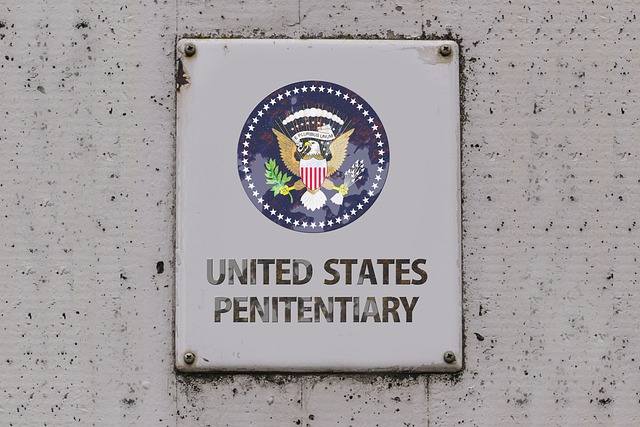A DUI arrest significantly impacts insurance adjustments, especially for non-residents or expatriates facing global immigration considerations. Rate increases, policy non-renewal, and coverage denial are common due to heightened risk perception. Understanding the legal frameworks of both local and international regulations is crucial for managing these complexities, ensuring continuity of coverage, and adhering to standards like those presented in the Global Immigration and DUI Perspectives. Consulting legal experts can help navigate visa applications, residency permits, and travel plans affected by DUI convictions worldwide.
After a DUI arrest, navigating insurance adjustments becomes a complex web of legal implications and immigration considerations. This article delves into the intricate process, exploring key aspects such as understanding post-DUI insurance adjustments, the legal fallout impacting claims, challenges faced by drivers in securing coverage, and the global immigration laws that often intertwine with DUI cases. Additionally, practical strategies for negotiating with insurance companies are provided to help individuals manage this challenging situation effectively.
- Understanding Insurance Adjustments After a DUI Arrest
- Legal Implications and Their Impact on Insurance Claims
- Challenges Faced by Drivers in Obtaining Insurance Coverage Post-DUI
- Global Immigration Laws and their Relation to DUI Cases
- Strategies for Effective Negotiation with Insurance Companies
Understanding Insurance Adjustments After a DUI Arrest

After a DUI (Driving Under the Influence) arrest, navigating insurance adjustments can be complex, especially with global immigration considerations in play. The immediate impact often includes significant rate hikes or even policy non-renewal from your insurer. This is due to the heightened risk associated with insuring drivers who have been convicted of DUI. In some cases, individuals may face challenges finding insurance coverage at all, particularly if they have multiple DUIs or other driving infractions.
Global Immigration and DUI Perspectives play a significant role here. Non-residents or those on temporary visas might encounter additional hurdles when dealing with insurance companies that are not accustomed to their specific circumstances. Language barriers and differing legal frameworks further complicate the process. Understanding these nuances is crucial for managing post-DUI insurance adjustments effectively, ensuring continuity of coverage while adhering to both local and international regulations.
Legal Implications and Their Impact on Insurance Claims

The legal implications of a DUI (Driving Under the Influence) incident extend far beyond potential criminal penalties, significantly impacting an individual’s insurance claims and future financial stability. In many jurisdictions, a DUI conviction leads to automatic changes in insurance policies due to the heightened risk associated with insuring drivers who operate under the influence. This often results in higher premiums, stricter coverage limitations, or even denial of insurance altogether. The consequences are especially severe for expatriates or immigrants navigating global immigration and DUI perspectives, as they may face additional challenges when dealing with insurance providers in a new country with different legal standards.
These legal implications can affect both personal and commercial insurance sectors. For individuals, it might mean stricter conditions on their auto insurance, potentially requiring installment plans or proving rehabilitation through safe driving records over an extended period before regaining favorable terms. Businesses involved in international trade or transport may also face increased costs due to the higher risk associated with their operations if a DUI-related incident occurs. Understanding these legal repercussions and their potential impact on insurance claims is crucial for anyone dealing with a DUI, especially those navigating global immigration laws, as it can significantly influence post-incident recovery and future financial planning.
Challenges Faced by Drivers in Obtaining Insurance Coverage Post-DUI

After a DUI (Driving Under the Influence) conviction, drivers often find themselves facing significant challenges in obtaining insurance coverage. This is due to the increased risk perceived by insurance companies, who may offer limited or high-cost policies to individuals with such a history. Global Immigration and DUI Perspectives highlight how this issue transcends borders, affecting expatriates and immigrants alike. The process becomes particularly complex when navigating different legal systems and insurance regulations in various countries.
Drivers post-DUI often struggle with higher premiums, restrictive coverage options, and even denial of insurance altogether. This can create a vicious cycle, where financial penalties from past mistakes make it harder to regain access to affordable insurance, hindering recovery and responsible future behavior. The Global Immigration and DUI Perspectives also underscore the need for comprehensive support systems that address both the legal and insurance aspects of post-DUI rehabilitation.
Global Immigration Laws and their Relation to DUI Cases

In the global immigration and DUI perspectives, it’s crucial to understand that a driving under the influence (DUI) conviction can have significant implications for individuals seeking to travel or reside abroad. Immigration laws worldwide often consider DUI offenses as serious criminal matters, which can impact visa applications, residency permits, and overall eligibility to enter or remain in a country. This is because drunk driving poses substantial risks not only to the driver but also to other road users and public safety.
As such, many countries have established stringent rules regarding DUI convictions. These regulations may include mandatory reporting of offenses, restrictions on license renewal, and denial of visa applications for those with DUI history. Individuals facing DUI charges should be aware of these global immigration and DUI perspectives to better navigate their legal options and potential consequences. Consulting with both immigration attorneys and legal experts specializing in DUI cases can provide valuable insights into how a DUI conviction might affect future travel plans and residency opportunities.
Strategies for Effective Negotiation with Insurance Companies

When negotiating with insurance companies post-DUI, understanding your rights and options is crucial. As highlighted in global immigration and DUI perspectives, knowing the legal implications and potential consequences can empower individuals to make informed decisions. Start by gathering all relevant documents related to the incident, including police reports, court records, and any evidence that supports your case. This comprehensive approach demonstrates a willingness to cooperate and can set a positive tone for negotiations.
Additionally, stay calm and professional throughout the process. Insurance adjusters may present offers that seem appealing at first glance, but it’s essential to thoroughly review them before accepting. Consider enlisting the aid of legal counsel or advocacy groups specializing in DUI cases; they can offer valuable insights into your rights and help navigate complex negotiations. By employing these strategies, individuals can effectively communicate their position and work towards a fair settlement.
After navigating the legal complexities of a DUI arrest, understanding insurance adjustments becomes crucial. This article has explored various aspects, from the impact on policyholder rights to strategies for successful negotiations with insurers. By recognizing the interplay between DUI cases and global immigration laws, individuals can better prepare for potential challenges in obtaining coverage. Armed with knowledge and awareness, drivers can assert their rights and make informed decisions post-DUI, ensuring they receive fair treatment in both legal and insurance matters.






